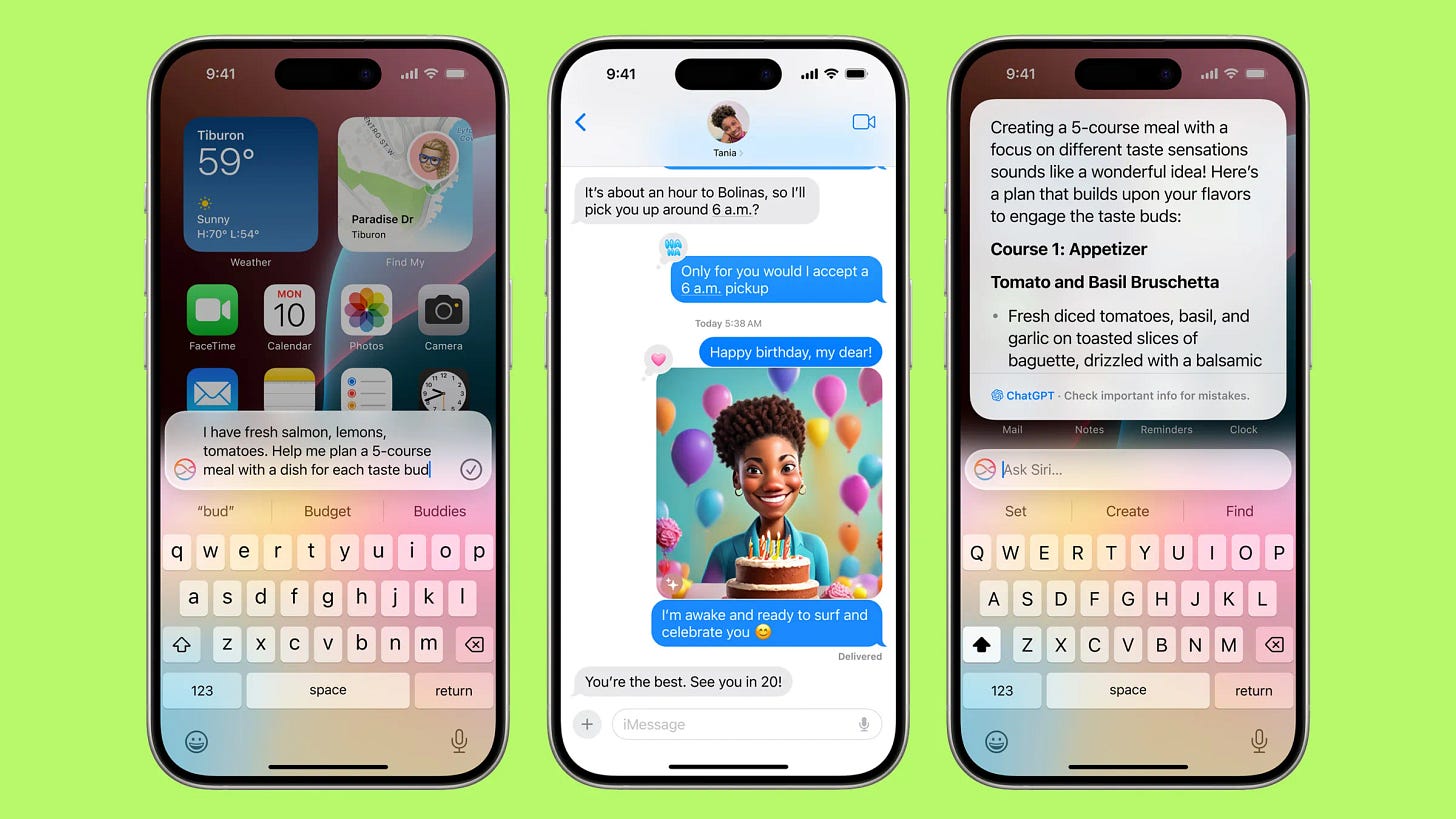How will AI phones from Apple and Google shape the future of our data?
Going from tech-curious to tech-literate can be simple if you have access to the right resources. Here are some recent highlights to keep you informed:
Welcome to the new subscribers who have joined us since the last newsletter! Here are some recent highlights to keep you informed:
AI agents are coming. Here’s what you need to know:
AI agents are models capable of making decisions autonomously and in real-world contexts. The ultimate goal for these agents is to perform a wide variety of tasks, similar to a human assistant.
According to new research from Princeton, AI agents typically have three key characteristics:
They can pursue challenging goals without explicit instructions in complex settings.
They can be directed using natural language and operate autonomously without supervision.
They are capable of using tools, such as web search or programming, and can plan and execute tasks effectively.
Some of their applications:
For Individuals: AI agents could assist with booking vacations, analysing to-do lists and executing tasks.
For Businesses: AI agents could serve as advanced customer service bots, handling natural language interactions and processing customer service tasks autonomously.
Their current limitations:
AI models today can complete tasks for us, but they’re unreliable and not really autonomous. For example, consider OpenAI’s GPT-4 and Google’s Astra model which are early agent prototypes. They hallucinate and have very narrow and specific use cases, so humans still need to be actively involved in the process.
AI models today can also lose track of their tasks over time due to limited context windows—the amount of data they can process at any moment. To address this problem, Google has said it is working on making its context windows infinite in the future.
AI models are evolving rapidly and changing the way we interact with technology. This thought-provoking article from MIT Technology Review looks into what the future could look like.
How will the new AI-enabled phones from Apple and Google shape the future of our data? An interesting perspective from the New York Times.
Some key takeaways:
Apple and Google recently introduced a new era of AI-powered smartphones. These devices are expected to automate complex tasks like editing photos, summarising audio transcripts and detecting whether a phone conversation is likely a scam.
But to make that work, these companies need more data from you. In this new paradigm, An iPhone will compile information across many apps you use, while an Android phone can listen to calls in real time to warn you about scams.
This has significant implications for our privacy:
To provide these personalised services, companies will need more persistent and intimate access to our data than before.
In the past, the way we used apps and accessed information on our phones and computers was relatively siloed.
But AI needs a comprehensive overview of what we do across apps, websites and communications.
The biggest potential security risk with this change lies in in how our new devices operate.
For AI to automate complex tasks, like removing unwanted objects in our photos, it sometimes requires more computational power than our phones can handle. That means more of our personal data may have to leave our phones to be processed in the cloud.
Once information reaches the cloud, it could be accessed by others, including company employees, bad actors and government agencies.
While some of our data has always been stored in the cloud, our most intimate data may soon be interconnected and analysed by companies on their servers.
What do you think?
If you liked reading this, feel free to click the ❤️ button on this post so more people can discover it on Substack 🙏
If you haven’t already, subscribe now to make sure you don’t miss out on any future newsletters.
Also, feel free to hit reply and ask me any questions you have about tech and I can include it in the next issue!
For regular content, you can follow me at:
If you know anyone else who you think would enjoy this content, you can share the newsletter from here:





